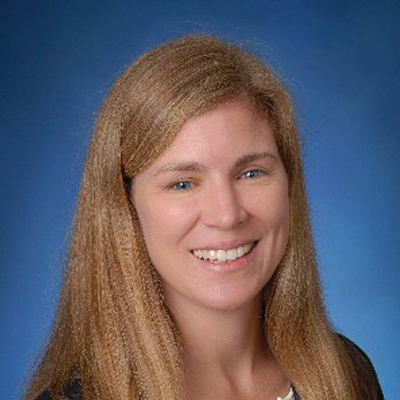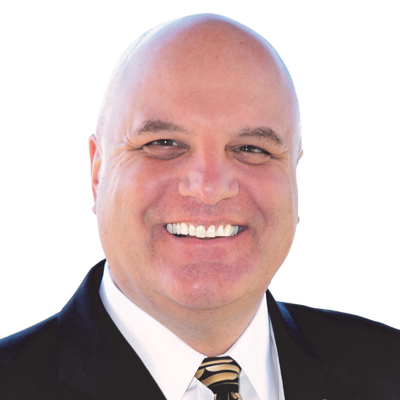Industry Events
Conference Organizers Say Live Events Could Resume in Fall
Many industry leaders welcome a return to in-person networking and in some cases, international travel to meetings.
- Renée Kiriluk-Hill
- June 2021
-





Organizers are using COVID-19 lessons learned last year to improve and expand industry events that remain largely virtual or hybrid, although nearly all fall events could return to live gatherings.
While vaccinations are becoming more widely available, few events will be live-only in the coming months because of continued uncertainty and travel restrictions imposed by governments and employers, organizers said.
Historically, few conferences are held in the summer. This spring, virtual and hybrid events dominate, with a number of live events rescheduled for later in the year or reformatted weeks prior to the gathering.
So far, most scheduled fall events are planned as face to face. These include the Vision Ottawa 2021 RIMS Canada Conference, Oct. 4-7; Baden-Baden Reinsurance Meeting in Germany, Oct. 17-21; and the National Association of Insurance Commissioners Fall Meeting, Dec. 13-16 in San Diego. The National Conference of Insurance Legislators plans to hold an in-person Summer Meeting, July 14-17 in Boston.

Last year, we were all thrown in the deep end, when the pandemic forced event closures globally. We’ve learned a lot.
Crista Hassett
National Association of Mutual Insurance Companies
“Last year, we were all thrown in the deep end,” when the pandemic forced event closures globally, said Crista Hassett, the National Association of Mutual Insurance Companies vice president of education and events. “We've learned a lot.” NAMIC is offering shorter sessions, with content-heavy snippets and more time to interact with the presenter and other participants. It will use this format at various events, including the Sept. 19-22 annual conference planned online and from Nashville, Tennessee.
She said she welcomes hybrid events because they're more inclusive. Employees with personal or professional conflicts—including tighter corporate travel budgets—can learn and interact remotely.
“We're on our computers all day, at home, in the same environment,” said Hassett. That makes prerecorded video presentations uninviting, regardless of importance or interest, she added.
The mutual association has a full events schedule this year with no fully live events, although it worked with hotel partners to move five hybrid events to the latter part of the year.
'Two Conferences at Once'
At the live portion of a hybrid event, Hassett said, measures such as social distancing will still be in place.
The Vermont Captive Insurance Association learned a flawless, professional hybrid event doubles the work behind the scenes, said President Richard Smith. “It's like two conferences at once.”
On a positive note, concerns about unreliable event connectivity to home offices with varying providers and speeds were unfounded. “We marveled at how well the conference came off” in the summer of 2020, he said. “It wasn't easy, but it worked. We converted all of our educational sessions to virtual sessions with live question and answer.”
The VCIA knew it had to decide on a format for this year's event by the end of 2020, Smith said, because of agreements it would have had to make for hotel and meeting space for a summer 2021 event that could draw 1,100 people.
Nine months into pandemic shutdowns, he said, the association's members and board, as well as state officials, weighed in and said it could work, but there was still a long list of contingencies. The decision was made to hold a virtual event Aug. 10-12.
Organizing virtual sessions has been easier than moving the strong networking and attention-grabbing swag of the exhibit hall online, organizers say.
The VCIA offered a template for a “cool exhibit booth” last summer, but it drew little traffic. In conjunction with The Matrix Group, this year the VCIA will offer a “solutions lab” instead. It asked captive owners and service provider members what challenges the segment faces—such as difficulty accessing affordable reinsurance—and exhibitors will show how they might help.
The captive group will push the virtual connection with Zoom breakout rooms and lounges participants can “walk through and see who it at a table and join in,” akin to a live event, said Smith. Attendees also will be invited to the virtual “speak-easy.” It's BYOB, but no one has to drive home, he noted.
The U.S. Centers for Disease Control and Prevention on April 20 warned that COVID-19 cases, hospitalizations and deaths are “extremely high” across the United States and recommended avoiding events and gatherings. The CDC listed factors that can increase the likelihood of contracting and spreading the virus at large events, such as exposure during travel, indoor settings and the length of the events, along with the number and behavior of attendees, and proximity to others.
“Consider the level of risk when deciding to host an event,” the CDC cautioned on its website.

Everyone is Zoomed out. Through a risk-management lens, a certain percentage won’t ever go back, so we’ll have hybrid-virtual events in a different way. This has shaken up the conference industry as a whole.
Lance Ewing
San Manuel Band of Mission Indians
CDC, Local Guidelines at Play
Lance Ewing, vice president of Enterprise Risk Management & Operations for the San Manuel Band of Mission Indians, called event attendance caveat emptor, noting venues are referring potential visitors to the CDC for guidance. The CDC may be “top dog,” he said, but some states are pushing back on its guidelines and opening more broadly.
In Vermont, Smith said, his state's governor and COVID-19 legislative committee built trust with constituents through their handling of the pandemic, distributing science-based information and stressing the need to work together. He thinks that took pressure off event organizers.
Some states, Ewing said, could “fight tooth and nail to keep” live event money flowing, and others could become regional meeting hot spots. Other states enacted, and could again institute, quarantine requirements, which would prohibit event attendance from out of state.
And when an event normally attracts an international crowd, or is held in another country, shutdowns or border restrictions may have an effect. “You're at the mercy, in some ways, of what a country will or will not allow,” Ewing said.
In fact, Les Rendez-Vous de Septembre in Monte Carlo briefly opened registration recently, but then decided to cancel its Sept. 11-16 event.
If a live event is permitted in a given location, Ewing said, event organizers could follow the money, poring over contracts to learn the cost of rescheduling with convention centers, hotels, catering, entertainment and transportation companies.
Hosts of large events may have signed terms as much as five years earlier, Ewing said. This far along in the pandemic, cancellation policies have changed. “Getting out may not be easy.”
On April 20, Johns Hopkins University of Medicine recorded nearly 68,000 new COVID-19 cases, a rising number that brought the United States total to more than 31.7 million confirmed cases and nearly 568,000 deaths.
Insurtech Insights learned to turn on a dime last year, moving a March 2020 event forward a year with the same sponsors and lineup, said Chief Commercial Officer Bradley Collins.
This year, it plans live events, including one in New York in June and another in London at the start of September. He said Insights Europe is the largest European insurtech gathering.
Insurtech Insights transitioned to a digital media business during the pandemic, but believes conferences should be live, not hybrid. It offers weekly webinars on claims, underwriting, digital transformation and more. Over the past year, it tripled its workforce from six to 22.
The webinars pull a steady global audience, a permanent, sustainable product that educates the industry, said Collins. “But they can't replace networking” at physical events.
“There's no substitute for a face-to-face handshake in the insurance industry; it's how the industry was founded,” he offered. “We will have 100% in-person events when we can do it safely. I look forward to seeing everyone in person.”
Ewing said he understands the desire by event planners to return to live events.
“Everyone is Zoomed out,” he said. “However, there are some caveats. Through a risk-management lens, a certain percentage won't ever go back, so we'll have hybrid-virtual events in a different way. This has shaken up the conference industry as a whole.”
The decision to attend or not to attend may be personal or employer-driven. Travel could ebb and surge—or require a vaccination passport—as the virus gathers fresh steam on variants, said Ewing. “It's not like you flip a light switch and 5,000 people gather at a conference in Las Vegas.”
He predicts hybrid events will remain a viable option as employers weigh the benefits of costly in-person appearances with time- and dollar-efficient virtual attendance.
NAMIC plans to continue hybrid events well past the pandemic's end, Hassett said.
After all, she added, the industry is just adopting digital connections that have always been a part of living, from schoolwork through meeting partners, for millennial and younger employees. “They already connected with each other digitally.”